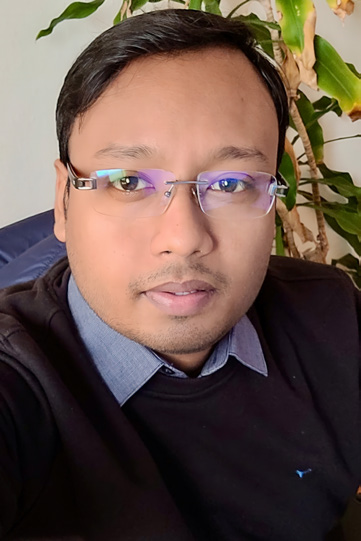News from the MCAA - Next-Generation tools for water quality testing and monitoring: When science meets society - September 2025
Newsletter
Billions of people worldwide still lack access to safe drinking water, with contamination often going undetected until it’s too late. Emerging optical and chemical sensing technologies now enable rapid, on-site detection of pollutants, cutting testing times from days to minutes. These next-generation tools bridge science and society, offering practical solutions for global water security.
Research journey
Clean water is not a luxury; it’s a human right. As per the WHO report, over two billion people globally lack access to safely managed drinking water. The causes are many, like industrial effluents, agricultural runoff, untreated human waste, and ageing infrastructure. These problems are often invisible until it is too late or until outbreaks of serious diseases or irreversible health impacts emerge. That is where science can step in, not just with discoveries and innovation, but with practical ground-level solutions.
As an MSCA postdoctoral researcher, I explore optical and chemical sensing technologies for testing and monitoring water quality. I am particularly interested in water contaminants that are difficult to detect through conventional methods. Traditional bacterial detection using E. coli takes 18–24 hours with a dedicated, established lab and expert to analyse the results.
One of my key solutions to this problem is developing a 3D-printed fluorometric device that connects to a smartphone and enables rapid, on-site water quality testing for pollutants such as faecal contaminants. This tool could be used as a primary screening, especially in low- resource settings. The detection of this analytical method’s sensitivity is based on fluorescence properties of biomarkers, i.e. urobilin, and with this optical sensor, nano to sub-nanomolar concentrations can be easily detected within minutes.

Swayam Prakash
Bionote
Swayam Prakash is a physical/analytical chemist developing innovative optical sensors and spectroscopy-based methods for rapid and on-site water quality testing, supporting sustainability goals through applied research and international collaboration. He is currently working as an MSCA Postdoc Fellow at BAM Germany.

Development of next-generation tools for water quality testing and monitoring through collaboration with Science and Society.
More than just science
Fieldwork, cross-disciplinary collaboration, and conversations with local stakeholders have changed how I see my scientific role. More than just producing data, I see it as part of a broader mission: supporting sustainable development technologies and contributing to Sustainable Development Goal (SDG) 6 on clean water and sanitation. These experiences have reshaped my understanding of what it means to be a scientist in today’s world. It’s not only about lab experiments or publications. It’s also about translating research into tools, co- creating knowledge with communities, and making science accessible, understandable, and useful. That’s the spirit of MSCA mobility that crosses borders not just physically but intellectually and socially.
Working across disciplines from physical chemistry, analytical chemistry, environmental chemistry and sensor engineering to public health and sustainability has been one of the most enriching aspects of my MSCA journey. It has helped me to design solutions that are not just technically robust, but also socially relevant. Of course, these research experiences have not just shaped my research, but they have also shaped my career path. I have grown more committed to interdisciplinary research and open science. In the end, as scientists, we have knowledge, vision and the responsibility to solve real-time problems.
Career development advice
As Marie Curie fellows, we are equipped with the tools to explore, lead, and innovate. Still, the question of “What’s next?” often lingers. Here are a few lessons and reflections from my journey that may resonate with fellow researchers.
1. Your skills are broader than you think. From data analysis and experimental design to scientific writing, project management, and collaboration, research equips us with versatile transferable skills. Recognise them, whether you pursue academia, industry, policy, or entrepreneurship; these capabilities provide a strong foundation.
2. Stay curious but stay open. Don’t limit yourself to one path. Many opportunities arise outside your original plan. I began in fundamental physical chemistry but found passion in translational water research, developing real-world sensors, working with industry, and contributing to the SDGs.
3. Communication matters. Learn to tell your story. Write, speak, and present in ways that resonate beyond academic circles. My involvement in science communication through the MCAA Newsletter, international essay competitions, participation in international conferences and public writing, among others, opened doors and built networks I never expected.
4. Think about impact, not just output. A career is not just a list of publications or grants. What problem are you solving? Who benefits from your work? What legacy do you want to leave?
The MSCA fellowship is not just a title but a launchpad. Use it to build a career that is not only successful on paper, but also fulfilling in purpose. Whether you are finishing your fellowship or years into your career, keep learning, adapting, and most importantly, connecting science with society.
Swayam Prakash
Orcid
LinkedIn
German Federal Institute for Materials Research and Testing, Berlin
swayam0prakash@gmail.com